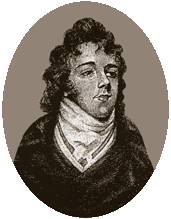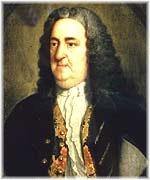Elizabeth Montague: Queen of the Bluestockings

Elizabeth Robinson was born very wealthy and well-connected. She grew up in Coveney, Cambridgeshire, under supervision of her grandparents, and was frequent childhood visitor to Cambridge where her grandfather was Librarian of Cambridge University. As a child, she demonstrated a serious interest in literature and, at 12 began a correspondence with Lady Cavendish Harley that lasted 50 years. Known in her youth as `Fidget', she was very fond of dancing. On this she remarked `Why shall a table that stands still require so many legs when I can fidget on two?' In 1742, Elizabeth married Edward Montagu, a grandson of the first Earl of Sandwich. The couple was devoted to each other, but they led individual lives. During the early years of her marriage, Elizabeth suffered many tragedies. Her only child died within a year, 1744; her mother in 1746, and brother in 1747. Bereaved, she took up residence in London in 1850, in an explicit attempt to set up a central point for intellect and fashion. Known for giving intellect the precedence of rank, she wrote: `I never invite idiots to my house.'
Through her lead, `conversation parties' became known throughout London. These were elaborate evening affairs where gambling was not permitted and literature was frequently discussed; these parties became known as blue-stockings. For 50 years she was the preeminent intellectual hostess in London, though a number of similar `competitors' appeared. Mrs. Montagu also found a great deal of fulfillment in Bath, where she lived at various times in several houses—in Orange Court, Edgar Buildings, Gay Street, Queen's Parade, the Circus and Royal Crescent. She entertained frequently, and Fanny Burney, Mrs. Thrale, Lady Huntingdon, Christopher Anstey and Lord Lyttleton, among others, enjoyed her hospitality, and the conversation that she so assiduously engendered. 
The house she occupied in Royal Crescent appears to have been 16 (now the site of the Royal Crescent Hotel). She refers to it in one of her letters as 'the centre house', and goes on to say
'the beautiful situation of the Crescent cannot be understood by any comparison with anything in any town whatsoever'.Her friends included Horace Walpole, Burke, and Dr. Johnson. She had a number of protégés, some of which seem to have been in love with her, but she was very proper. When Dr. Monsey `declared that he did not believe a more perfect human being was ever created.' Burke replied `And I do not think that he said a word too much.' Dr. Johnson reflected, `She diffuses more knowledge than any woman I know, or indeed, almost any man. ... Conversing with her, you may find variety in one.' Elizabeth Montague anonymously contributed 3 dialogs to Lyttelton's Dialogues of the Dead in 1760. During the 1760’s, the Montagues traveled extensively, visiting Paris, Germany, Holland, and Scotland. While on these trips she visited many of the celebrities of the day. Offended by Voltaire's contempt for Shakespeare, she published her book An Essay on the Writings and Genius of Shakespeare compared with the Greek and French Dramatic Poets, with some Remarks upon the Misrepresentations of Mons. de Voltaire in 1769. This was a great success and she became known as its author. In her defense, she states,
“Few people know anything of the English history but what they learn from Shakespeare; for our story is rather a tissue of personal adventures and catastrophes than a series of political events."
When her husband died in 1775, Elizabeth took control of the families’ interests and proved a formidable business woman. She was, apparently, always on good terms with her family. Friends recalled her as ‘handsome, fat, and merry.’ Her nephew, Morris Robinson, was her favorite and chief companion after her husband's death. He took the name of Montagu in 1776, and received all her (very extensive) property upon her death in 1800.
History adapted from They Came to Bath and The Montagu Millenium: 1,000 Years of Worldwide Family History.
Enjoyed this article? If you don't want to miss a beat when it comes to Jane Austen, make sure you are signed up to the Jane Austen newsletter for exclusive updates and discounts from our Online Gift Shop.



1 comment
“Bereaved, she took up residence in London in 1850, in an explicit attempt to set up a central point for intellect and fashion.” I believe this should be 1750. No need to publish the comment.
Diana Patterson
Leave a comment
This site is protected by hCaptcha and the hCaptcha Privacy Policy and Terms of Service apply.